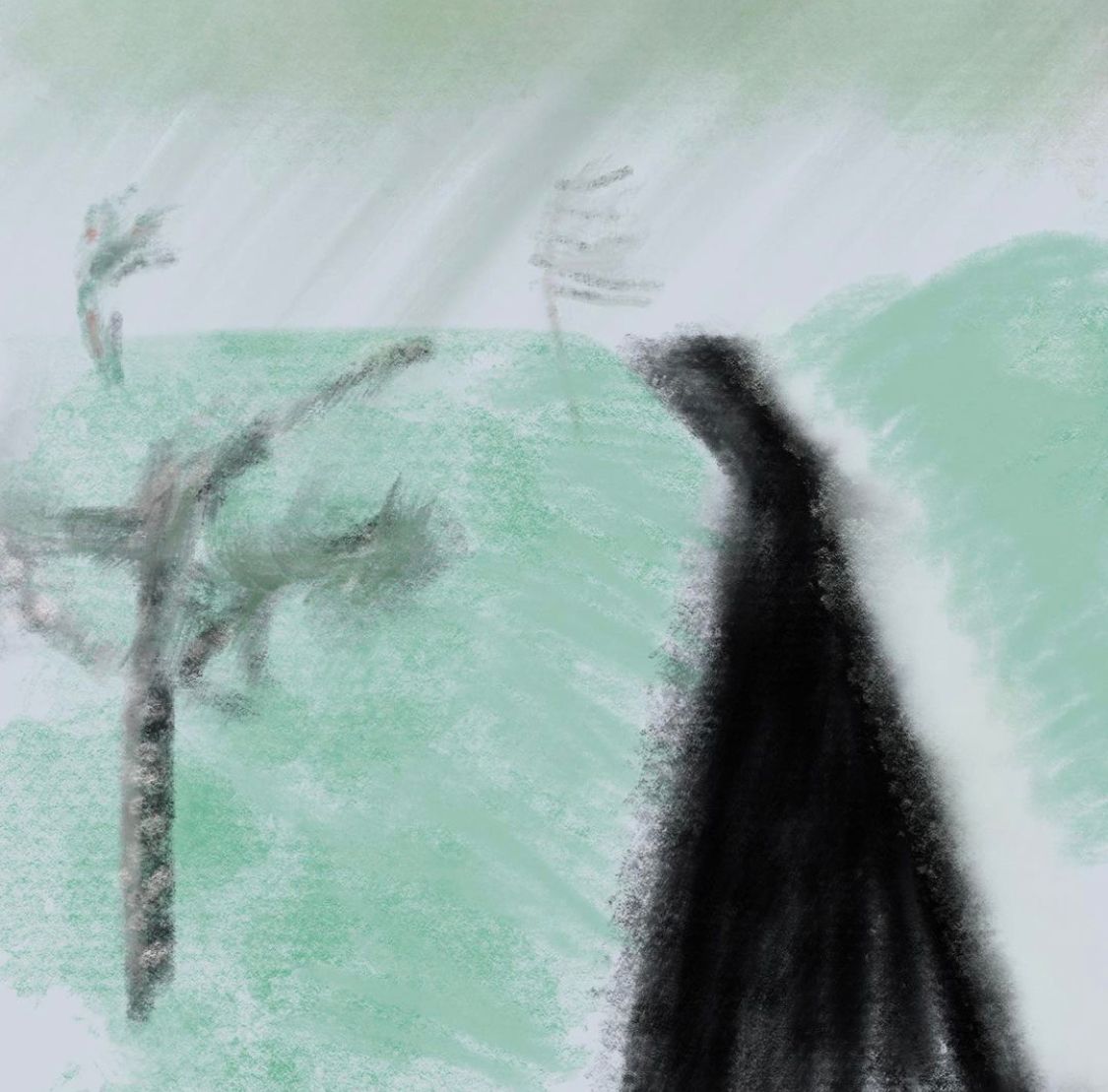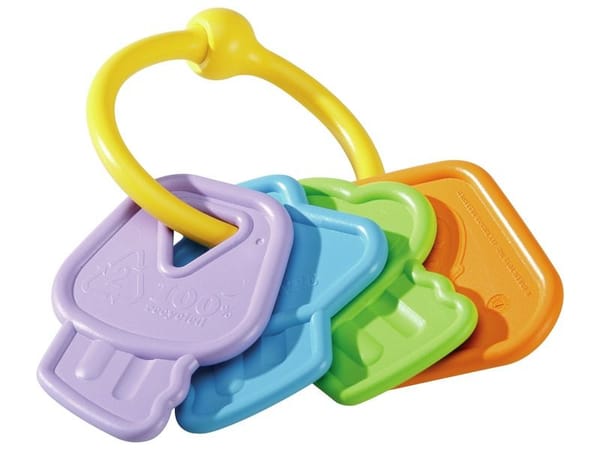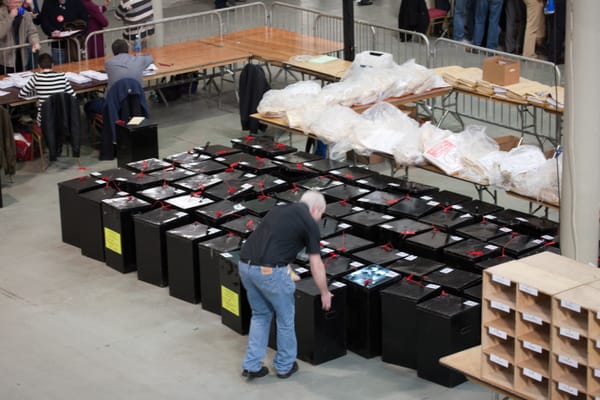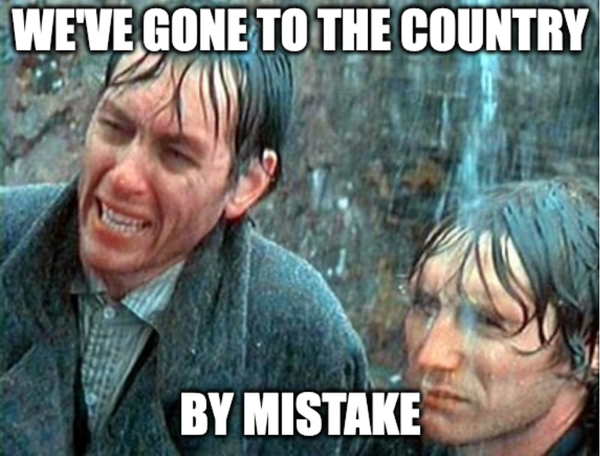The Gist: FF, the Coalition's Biggest Small Party
Irish coalitions have one defining factor- the smaller party gets hammered. The Greens feared it, but chose to enter Government anyway. But what happens when a party just... seems small?
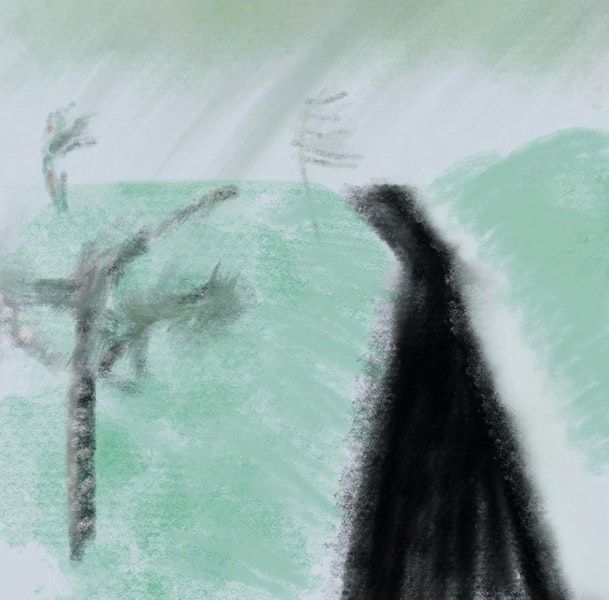
It’s the single most consistent factor in Irish coalition politics. If you join a coalition as the small party, you risk anything from brand damage to full-scale electoral wipeout. Even the PDs, in the end, couldn’t save themselves from the fate of the littlest co-bo.
Even the Journal of Nordic Irish Studies could see the dynamic clearly in 2018;
The strongest party in the coalition reaps the benefits of coalescing with a minor party and wins over the latter’s supporters.
So, when FF and Fine Gael went shopping in April 2020 for a small party to make up the numbers in their Grand Bargain, everyone knew what the party foolish enough to bite the poisoned apple would face.
RTE’s political reporter Sandra Hurley described the familiar bargain;
They have to weigh up the opportunity to realise policies, versus the risk of shouldering blame and being railroaded by the larger partner.
But, since then, something unforseen has happened. The familiar dramatic draining away of support has gurgled down the plughole, not of the Green Party, but of Fianna Fáil. Fianna Fáil, which never imagined itself as taking any ‘minor party’ risk in entering a coalition because it has always been the overwhelming larger party.
But take a look at the Irish Times/IPSOS MRBI poll. This has long been considered the gold standard of Irish polling (in part just because it has been running for so long).
The Green Party received 6% support, basically the same as their election result of 7%.
But Fianna Fáil have fared as every minor party coalition member before them. The public have decided they are the face of failure, whatever failure they might imagine that to be.
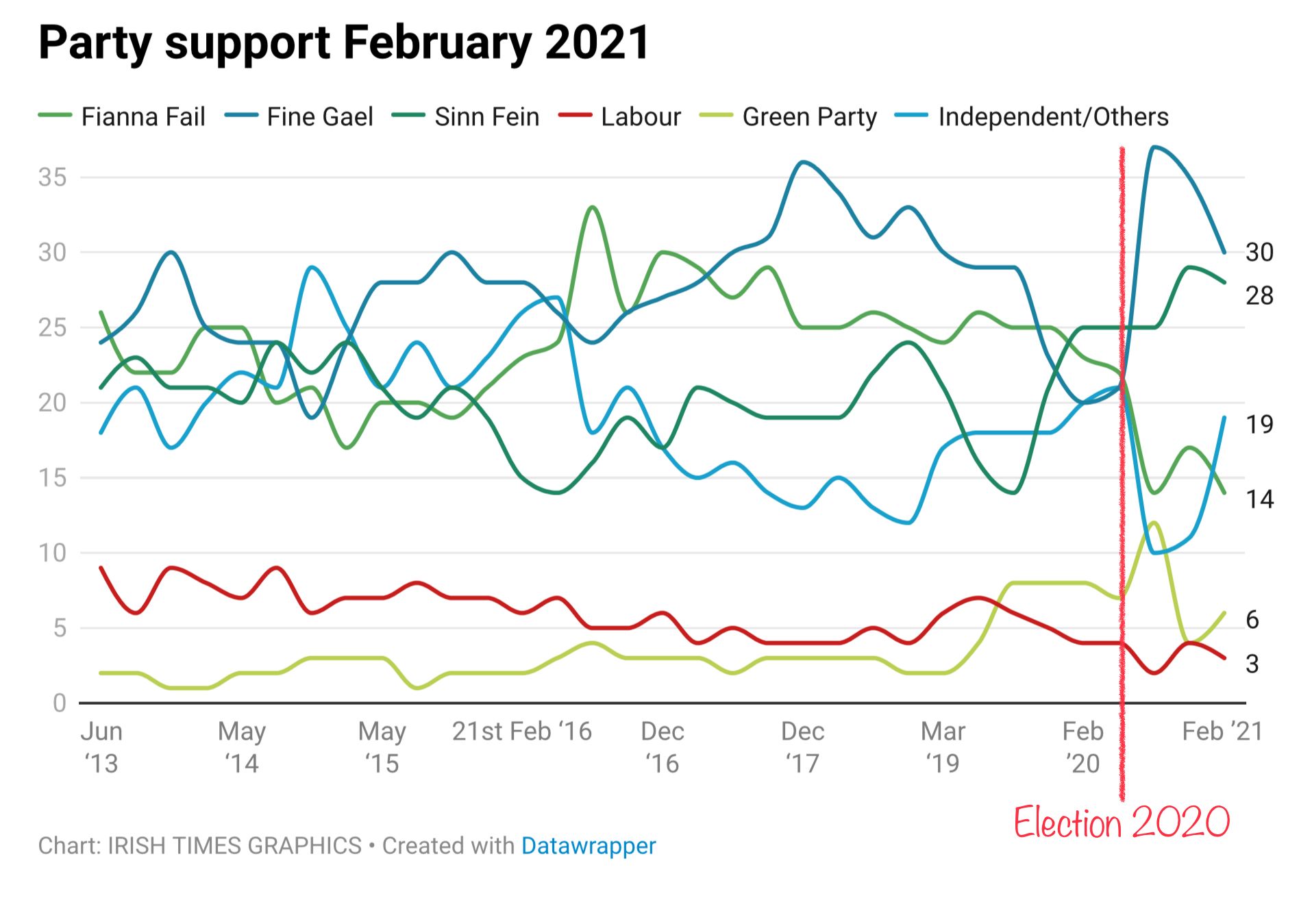
Leave aside the details of what the public might consider those failures to be (mostly Covid related, unsurprisingly).
The real question is why the curse of the small party has fallen on, what is after all, the party with the most TDs. And, again, this comes down to the existential crisis Fianna Fáil has been facing for some years. It has declared itself to be a Centre Party, in an age of polarisation. But, when you examine it, it doesn’t have centrist policies so much as a lack of any particular viewpoint. That’s not new- the Fianna Fáil of the past stood for Fianna Fáil, and in a country where that meant patronage unlimited, everyone knew where they stood on that policy.
FG have soared since the election and the Greens have carried on mostly the same. Both are the thing they are. But, even nominally leading the government, nobody knows what FF are. We only know that if most of their TDs and members got what they want it would see them diminish and go into the West.
The area the party is still strongest (conservative catholic voters) is a fast-shrinking cohort in the electorate. Committing to that identity is to abandon any plans for a significant future.
Without a clear sense of social aims beyond an aspiration at technocratic competence, FF can’t loom large in the national imagination. But if they plump for that one clear reactionary path their TD’s find so attractive, they’ll shrink even further.
Which means Fianna Fáil may have to get used to a future of coalitions as as the smaller party in more ways than one.
